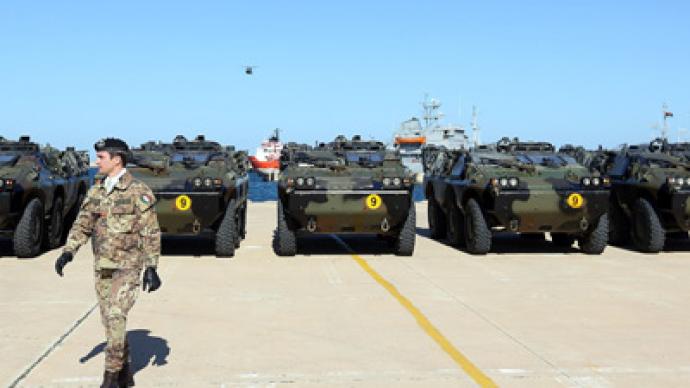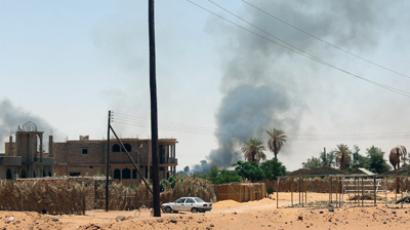Military forces from Italy, Qatar in Libyan port ahead of revolution anniversary

Arms and troops from Italy and Qatar are arriving at Tripoli's Al Njela seaport to help the Libyan leadership, should violence erupt on the second anniversary of the revolution that ousted Muammar Gaddafi.
The reports came from the port of Said, Libya, where, as a source told RT, about 120 armed cars have already driven in with 35 more set to arrive. Libya is stepping up security nationwide, and is set to close its borders with Egypt and Tunisia at 2:30am local time on February 14 until February 18, according to a statement by the Prime Minister. The anniversary of the start of the uprising falls on February 17. Libyan Prime Minister Ali Zeidan said that international flights would also be suspended at all airports except for those in the capital Tripoli and second largest city Benghazi in the east, according to state news agency Lana.Security services were placed on alert, and checkpoints have been established across Tripoli ahead of the anniversary. On Tuesday, top Libyan and foreign officials agreed on a plan to boost security in the country, including tighter border controls, the disarmament of former fighters and the training of troops. Participants in the high-profile meeting included Libyan Foreign Minister Mohammad Abdel-Aziz and his counterparts from France, Britain, Italy, Denmark, Turkey and Malta. The measures came after calls for massive protests, with some activists urging a “second revolution.”
Two years after a popular uprising that lasted for almost a year – which toppled and killed long-time ruler Muammar Gaddafi – Libya remains largely destabilized. In December, Libya closed its borders with Algeria, Niger, Chad and Sudan, citing a deterioration of security in the south of the country, and declared the region a military zone. Conflict in Mali and Sudan is seen as the reason behind the closure, as well as the fact that Libya's southern border is 4,600 kilometers long and mostly desert.














